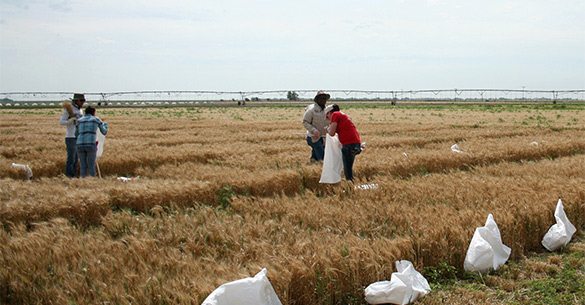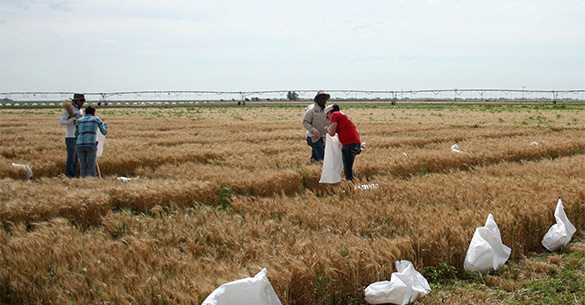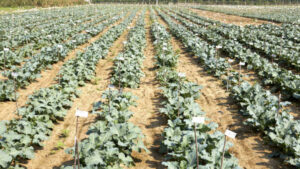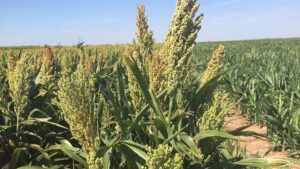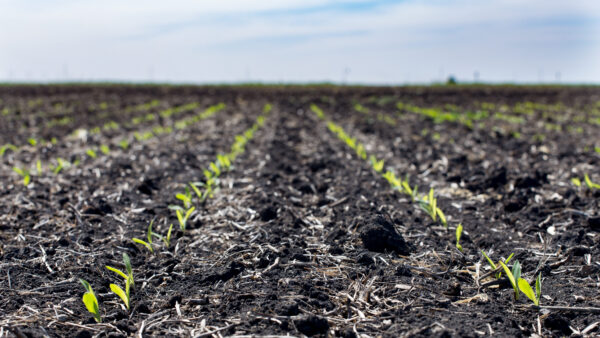Texas-bred wheat, by way of Amarillo and College Station, will find tiny bits of itself in new breeds of spring wheat in Africa in the near future.
Dr. Shuyu Liu, Dr. Amir Ibrahim, Dr. Jackie Rudd and Dr. Qingwu Xue — all Texas A&M AgriLife Research wheat program leaders — have been working to strengthen wheat varieties and increase yields and drought tolerance for the Texas industry.
But it is a Texas A&M University doctoral student they advise, Silvano Ocheya, who is taking their work and carrying it across continents in his thesis project.
Ocheya, a Monsanto Beachell-Borlaug Scholar who grew up in Kenya near Kisumu, addresses his work in the thesis, “Identifying Single Nucleotide Polymorphic (SNP) Markers for Drought Tolerance in Texas Wheat and Introgression into Spring Wheat for African Countries.”
“I believe this research is vital and will link research in the U.S. and Kenya,” Ocheya said. “I hope it will create a scientific community between developed and developing countries, and this will enhance germplasm flow as well as information between the two countries.”
Ocheya has been named a Fellow for the Norman E. Borlaug Leadership Enhancement in Agriculture Program of the U.S. Feed the Future Borlaug 21st Century Leadership Initiative and is provided U.S. Agency for International Development funding to cover travel expenses for his research in Kenya, said Liu, an AgriLife Research small grains geneticist in Amarillo.
“This study should add to the foundation required in tackling drought stress across the world,” Liu said. “The SNPs associated with drought tolerance will be used in the marker-assisted breeding to move superior traits from Texas A&M AgriLife TAM wheat into Kenyan spring wheats.”
In addition to Ocheya’s U.S. advisors, Ocheya is working with Dr. Peter Njau at the Kenya Agricultural Research Institute, or KARI, and Dr. Sridhar Bhavani at the International Maize and Wheat Improvement Center in Mexico, more commonly referred to as CIMMYT.
For the complete story, visit http://soilcrop.tamu.edu/texas-bred-wheat-traits-headed-to-africa/.


